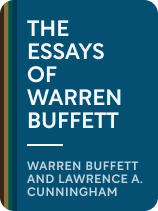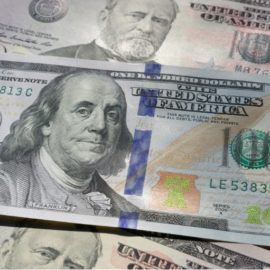

This article is an excerpt from the Shortform book guide to "The Essays of Warren Buffett" by Warren Buffett and Lawrence A. Cunningham. Shortform has the world's best summaries and analyses of books you should be reading.
Like this article? Sign up for a free trial here.
What exactly are financial derivatives? Why does Warren Buffett scorn derivatives?
Derivatives are contracts between two parties in which one pays the other if some other financial instrument (for example, a stock or a bond) reaches a certain price, up or down. On derivatives, Warren Buffett famously said: “Derivatives are financial weapons of mass destruction.”
Here’s why Warren Buffett warns against derivatives.
Warren Buffett: Beware of Derivatives
According to Warren Buffett, derivatives are the most troublesome of all complex financial products, such as those that drove the subprime mortgage crisis. In the simplest terms, derivatives are bets that a portion of the market will behave a certain way. They are instruments of pure speculation, and unless there’s some form of collateral involved, a derivative’s value rests entirely on the financial strength of the parties involved in the gamble.
(Shortform note: The specific types of derivatives that precipitated the 2008 financial crisis were Credit Default Swaps based on subprime mortgages. In a Credit Default Swap, Bank A exchanges a variable-rate loan for a fixed-rate loan held by Bank B. Bank A hopes to protect itself from the possibility of rising interest rates, while Bank B is betting that interest rates will stay low. By 2008, the number of Credit Default Swaps had grown exponentially, making them extremely vulnerable to a sudden decline in the real estate market.)
Buffett argues that derivatives are also instruments of fraud. Until the derivative actually comes due, both parties to the bet can use fictitious projections to claim that their derivatives produce actual earnings, and then get paid by their investors based on those supposed earnings (like receiving a cut from a race horse’s winnings before the race is even run). It’s only when one of the parties tries to cash in on their derivative contract that any fictitious claims about its value are revealed, and if the “loser” of the derivative bet defaults, then both sides’ projected earnings disappear. Before that time comes, however, derivative contracts are designed to be so complex that their true risks and false earnings claims are hard for portfolio auditors to spot.
(Shortform note: A striking case of derivatives fraud was perpetrated in 1995 by Nick Leeson, a derivatives trader for the United Kingdom’s Barings Bank. Leeson gambled a vast amount of money using derivatives to bet on Japan’s Nikkei 225 stock index, then manipulated accounting records to hide the scope of his losses, which led to Barings Bank going bankrupt. However, most cases of derivatives fraud rise from dealers misrepresenting the amount of risk to investors, as with mortgage derivatives in 2008 or currency derivatives in 2009. It’s been proposed that creating a Market Manipulation Index would give regulators a tool to zero in on markets being targeted by derivatives fraud.)
Even more than avoiding such toxic financial products, Buffett wants to impress upon his readers that you should never borrow money to invest. This has always been the curse of Wall Street, and it’s led many individuals, companies, and banks straight down the road to financial ruin. Brokers, advisers, and money managers sugar-coat debt by calling it “leverage,” which fueled the corporate takeover craze of the 1980s. Easy access to debt can be like a drug, especially when tied to the thrill of investing. Eventually, though, all debts come due, and if your investments have dropped in value, you won’t be able to pay your debts off. However, if you only invest with cash, you’ll be well-prepared for any hiccups in the market.
(Shortform note: Financial experts agree with Buffett that being debt-free is of paramount importance to your financial health. In Rich Dad’s Cashflow Quadrant, Robert Kiyosaki says getting out of debt first is a prerequisite for smart investing, especially if your debt is tied up in high-interest credit cards that drain your financial resources faster than returns on investment can replace them. However, if your debt carries a low interest rate, it might be wise to start investing anyway. In I Will Teach You to Be Rich, Sethi identifies student loans as one such low-interest form of debt. Because he emphasizes the importance of starting to invest at a young age, he says that you should do so even if your student loans aren’t fully paid off.)

———End of Preview———
Like what you just read? Read the rest of the world's best book summary and analysis of Warren Buffett and Lawrence A. Cunningham's "The Essays of Warren Buffett" at Shortform.
Here's what you'll find in our full The Essays of Warren Buffett summary:
- A glimpse into the mind of a man who disagrees with the typical Wall Street mogul
- Buffett's simple yet difficult insights on investing
- Why some of the most widely accepted economic practices are wrong






